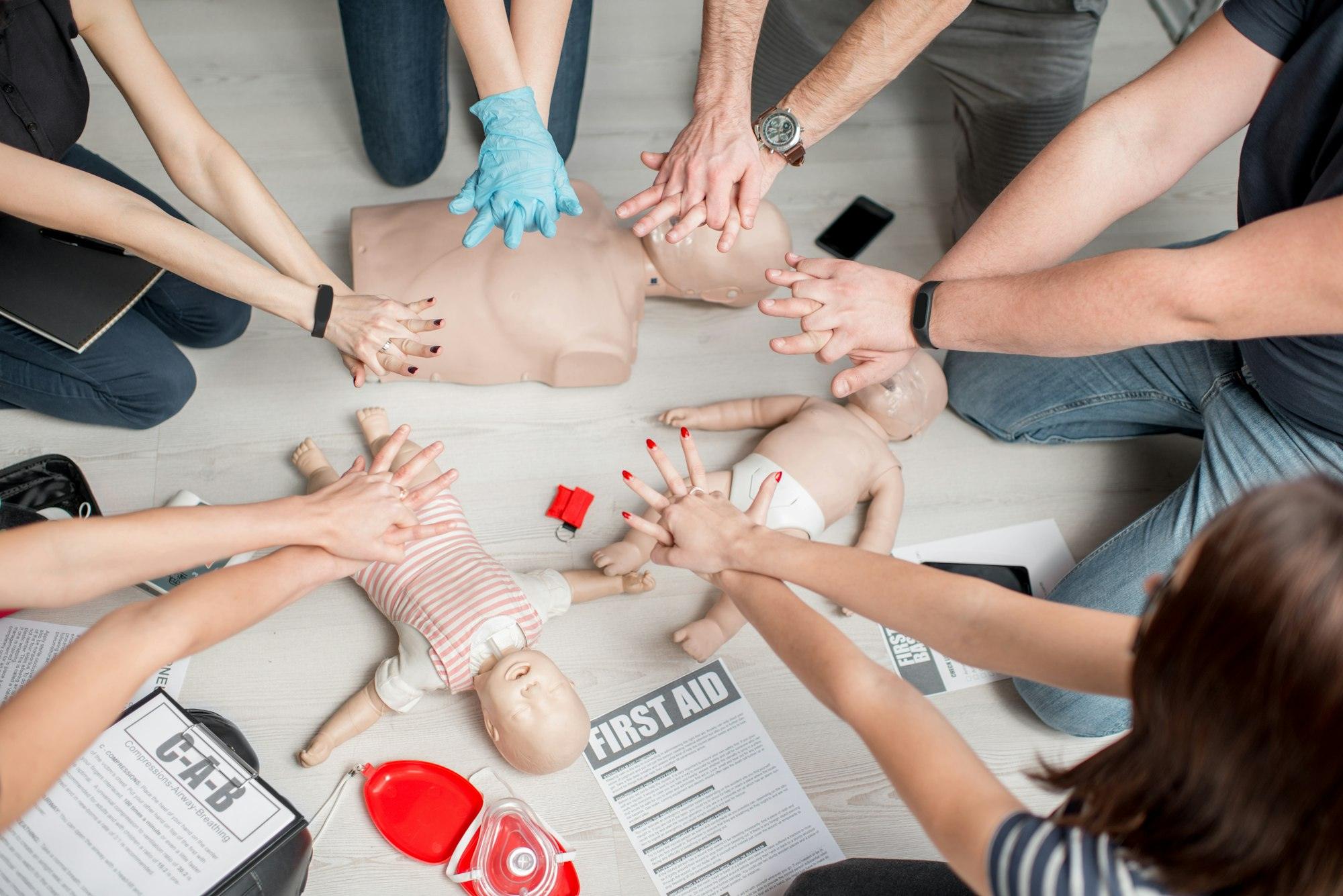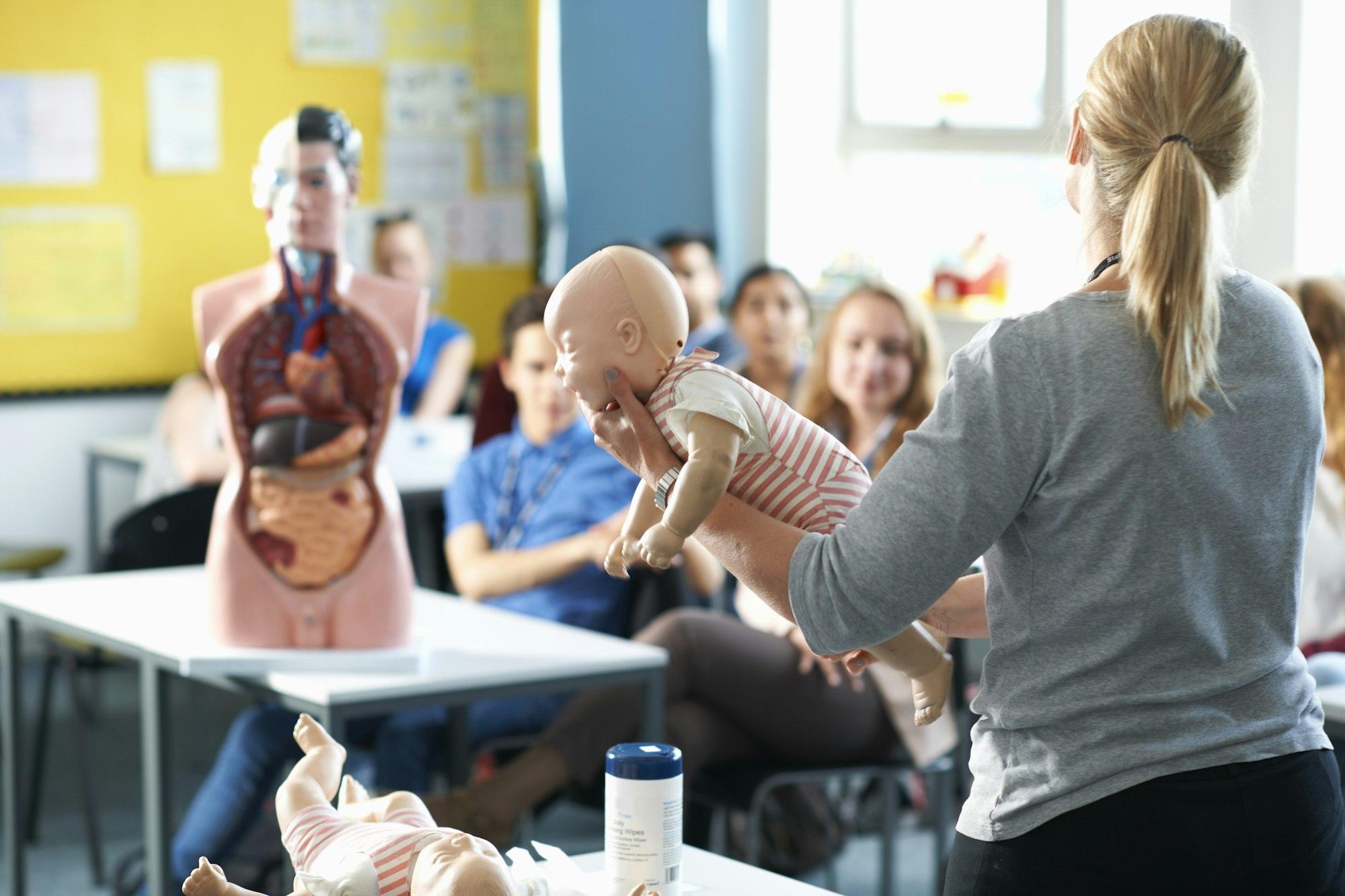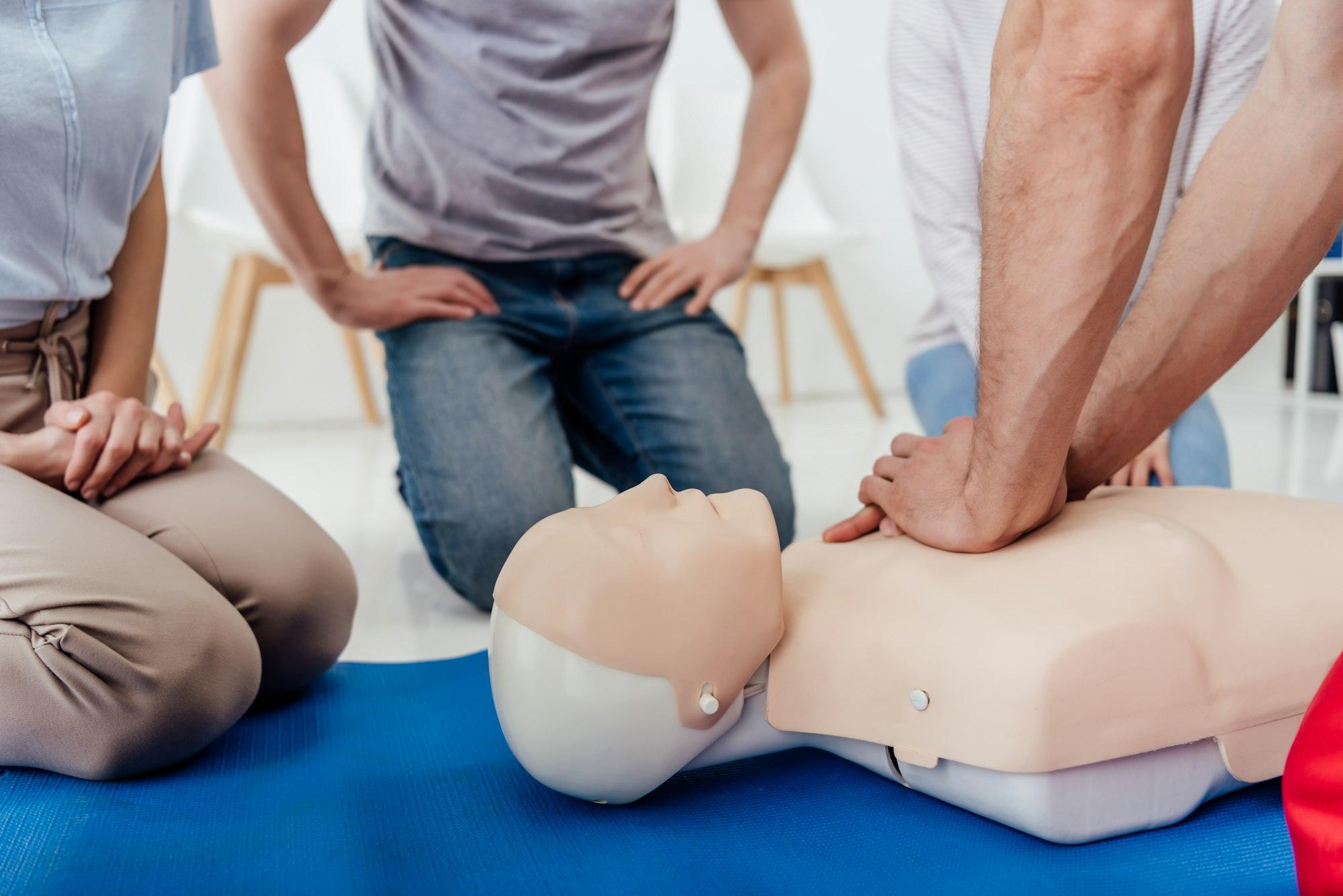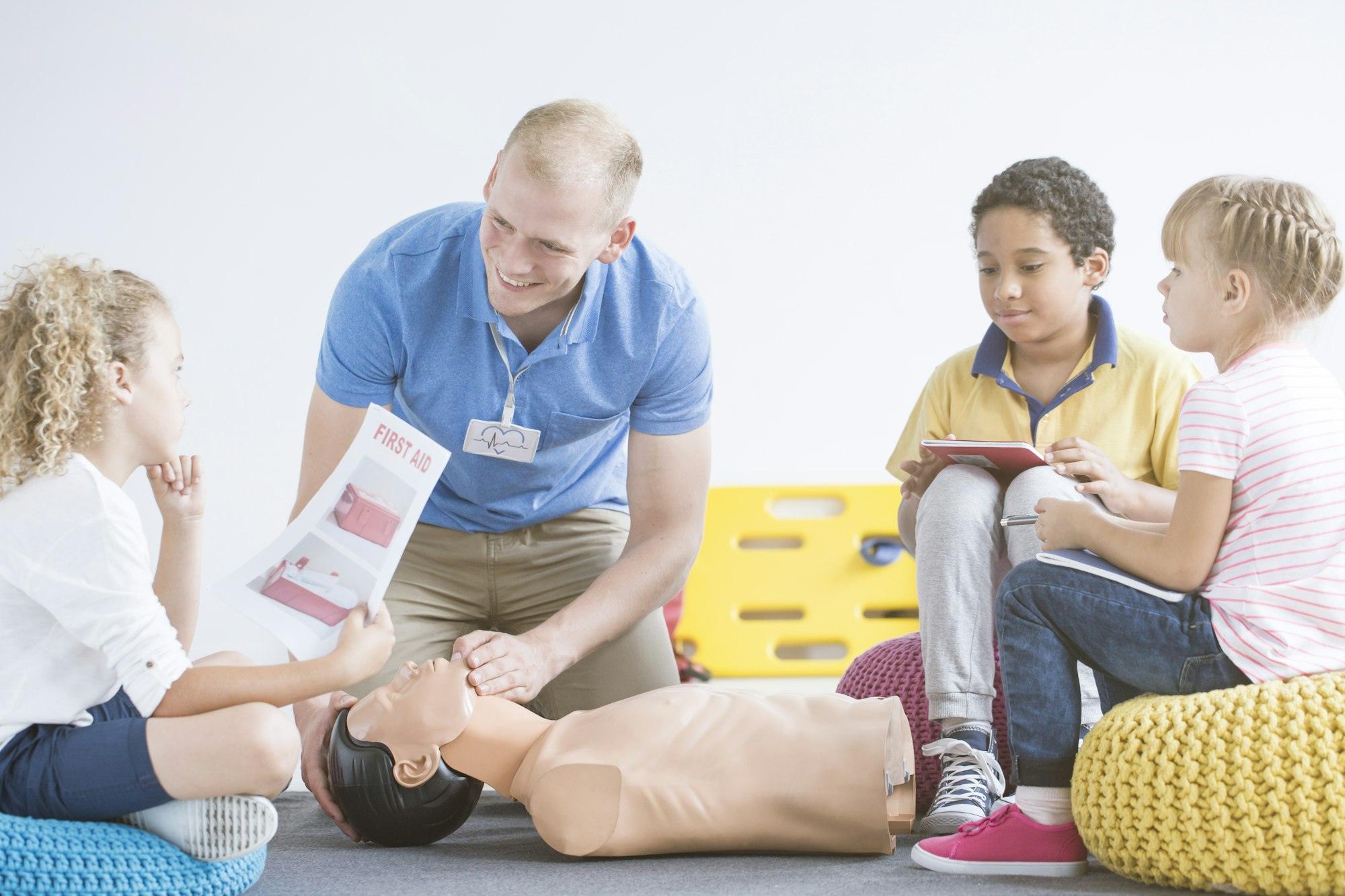First Aid Courses In Durham, from First Aid at Work to Paediatric First Aid at the best prices guaranteed
What do you do when assessing an incident?
When you arrive at an incident you need to conduct what called a scene survey. This is to make sure ensure that the safety of everyone around is paramount. The following steps will help you ensure that the scene is safe;
- Control the situation – take a rain check and control all the surrounding including any traffic or bystanders
- Look around to identify any dangers – identify anything that will or can cause harm to the casualty, anyone around you and most of all yourself.
- Assess the area and situation – Gain as much information as possible about what happened, ask bystanders and anyone around what they seen.
- Protect and prioritise – make sure barriers are on, IE gloves, and when dealing with multiple casualties prioritise treatment.

What is a Primary survey?
The primary survey is a systematic system of;
- approaching
- identifying
- dealing and coping with instantaneous and or existence-threatening conditions.
Having conducted a scene survey and established that the immediate area is safe from any dangers, you can now approach the casualty. When approaching the casualty an initial casualty assessment should be conducted; this initial assessment is called a primary survey
This systematic system can be remembered by an acronym DRABCD
What does DRABC stand for?
The systematic system acronym DRABCD stand for;
Danger
Response
Airway
Breathing
Cpr/Circulation
Defibrillation
Let’s look at each in turn
First Aid Courses In Durham
Danger – Before you approach the casualty, make sure the area around the casualty is safe in order for you to treat them, also to protect yourself any bystanders.
Response – This is to see if the casualty will respond to you if you tap them on the shoulder or call their name
Airway– Ensure the airway is open by tilting the head back and opening the airways, this is known as the head, chin, tilt approach
Breathing – Check the causalities breathing for 10 seconds – this is done by looking down the chest and looking for chest movement, listening for any noise and feeling if any breath is coming out the causalities mouth
First Aid Courses In Durham
(note, if the causality is breathing there is no requirement to do circulation – you would put the casualty in the recovery position, we will look at this later)
Cpr/Circulation – This is only don’t when the casualty is not breathing. CPR is 30 chest compressions and 2 rescue breaths)
Defibrillation
What does CPR stand for?
CRP stands for cardio, pulmonary, resuscitation

Our guarantee to you is we ‘Will’ beat any genuine written quote.
For further details on any of our First Aid Training courses please contact us or we can arrange to call you back and discuss your requirements
Please feel free to check out our FREE resources in our course library here










